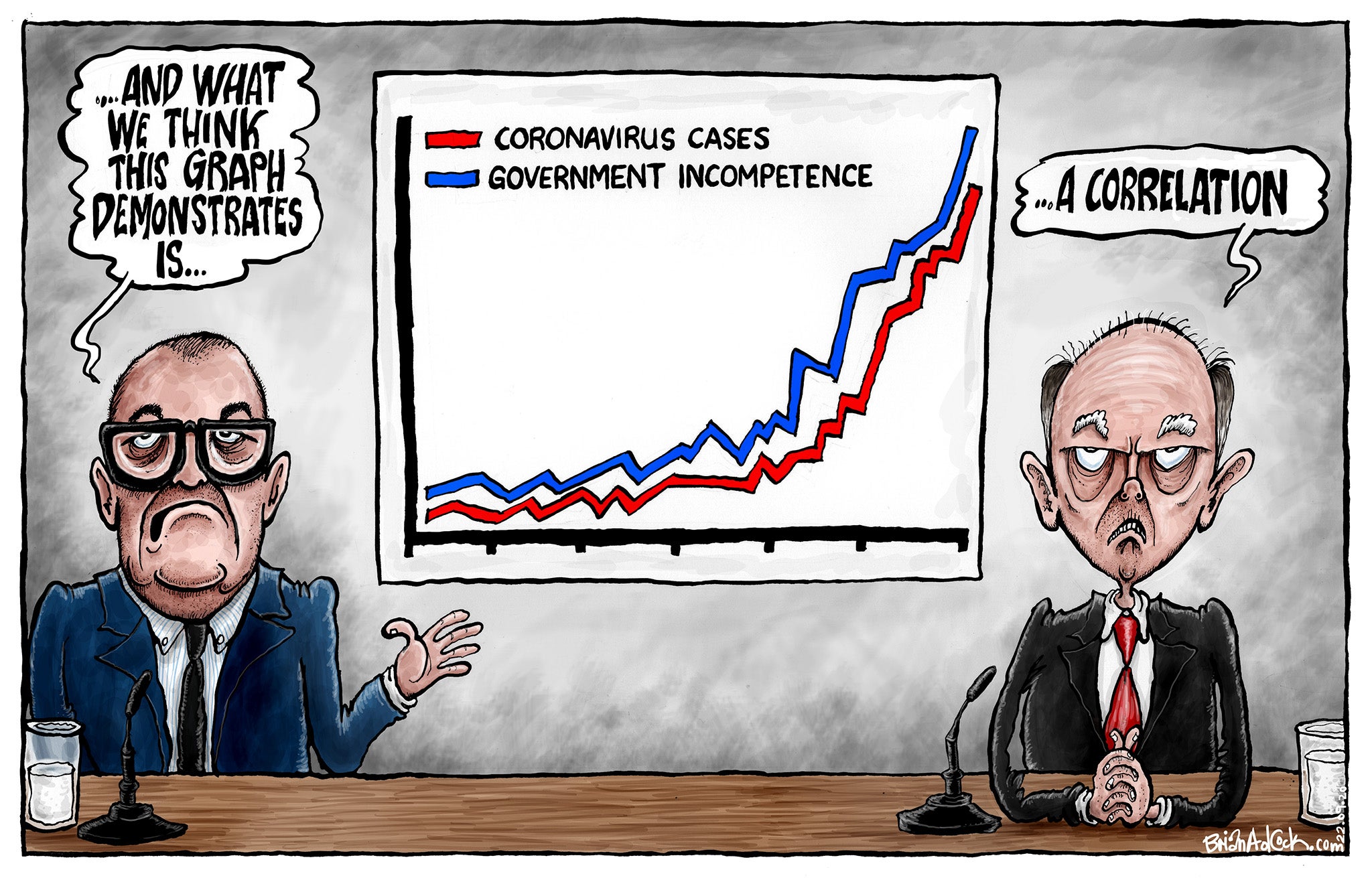A second wave of coronavirus is coming – Boris Johnson must learn lessons from March and act now without delay
Editorial: While some excuse might be granted for the unprecedented situation that presented itself back in spring, there can be no reason for hesitation now

Speaking from their new-look Downing Street “studio”, the chief medical officer, Chris Whitty, and the chief scientific adviser, Sir Patrick Vallance, could not have been clearer: the “second wave” of Covid-19 is almost upon us, and it calls for urgent action. It was telling that they appeared alone, with no government minister on hand to provide spin or detract from the credibility of the message. But that does not augur well for the future public compliance with government instructions.
Given what has happened across the world during this crisis, the government’s most senior advisers can hardly be accused of scaremongering. Despite rumours to the contrary, the coronavirus is not evolving into a more benign organism, and it can still cause death and long-term disability. Relatively few individuals have had Covid-19, which means there is no herd immunity. Indeed the signs seem to be that those who have suffered a bout of the coronavirus do not retain immunity indefinitely.
There is good news on progress towards a safe and effective vaccine, but it will not be widely available until next year. We know that the R rate has been rising; and we also see how widely applied the growing number of “local” lockdowns are.
As was so often warned, the virus never went away, and it has retained all of its terrible power to spread exponentially. The key to controlling it is to take action and to do so without delay. That is certainly the lesson of March this year, when vital time was lost somewhere in the Downing Street machinery. While some excuse might be granted for the unprecedented situation that presented itself then, there can be no reason for hesitation now. The prime minister has been right to be reluctant to act precipitately, because of the damage that will be inflicted on non-Covid healthcare, education and the economy; but he is also right to be ready to act now.
He has his critics in his own party, those who believe, misguidedly, that collective public health is a matter for individual conscience, and they are already unhappy with the “rule of six”. They will offer the first serious resistance to their own government when the measures are voted on in the Commons next week. Mr Johnson should face them down, even if it means relying on Labour votes. The proposed short partial lockdown may be regarded as the antithesis of conservatism and individual liberty, but it is necessary to save lives, and proportionate.
If anything, the kind of measures now being trailed are probably too modest. A two-week “circuit breaker” may need to be extended, if only because the time lags between Covid-19 infection and hospitalisation are so long – the effects of the new policy may not be clear when the time comes to lift the lockdown.
The effectiveness of the partial lockdown also relies on the public’s willingness to obey it. There are signs this is fraying. There is an understandable degree of fatigue, particularly among the young, who have been hit hardest socially and economically, but who tend not to suffer medically as much as their parents and grandparents. Inevitably, if wrongly, they will wonder why they are having to sacrifice the most.
Others will object because infection rates in their county or city are low, as if Covid-19 can be sealed off at a local authority boundary. The Cummings affair and the general incompetence of the government have eroded the public’s willingness to go along with the rules, which are poorly understood. Even talk of £10,000 fines is unlikely to scare people if the chances of getting caught are low or if disobedience is widespread. The less compliance there is, the longer and more extensive the second national lockdown will need to be, potentially stretching into Christmas.
Yet it is the abject failure to implement a test and trace system that most undermines the fight against Covid-19. With or without a lockdown, it has caused unnecessary suffering, and social and economic harm. Had a more efficient system been devised and made to work, we would have had fewer local lockdowns so far, and the measures that will now need to be taken would not need to be so draconian. The lessons of the testing failure in the spring were not learnt, and the government, even now, cannot bring itself to admit that mistakes were made when the first wave of Covid-19 hit the country. The same mistakes are being made again.




Join our commenting forum
Join thought-provoking conversations, follow other Independent readers and see their replies
Comments